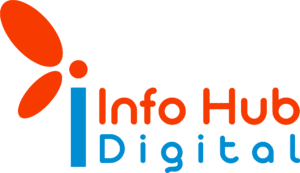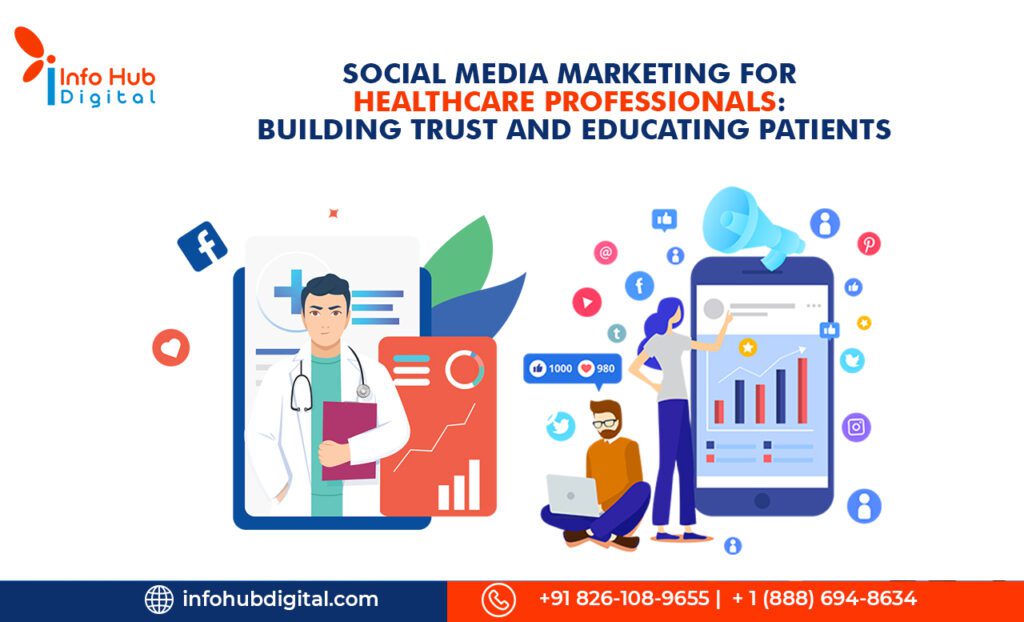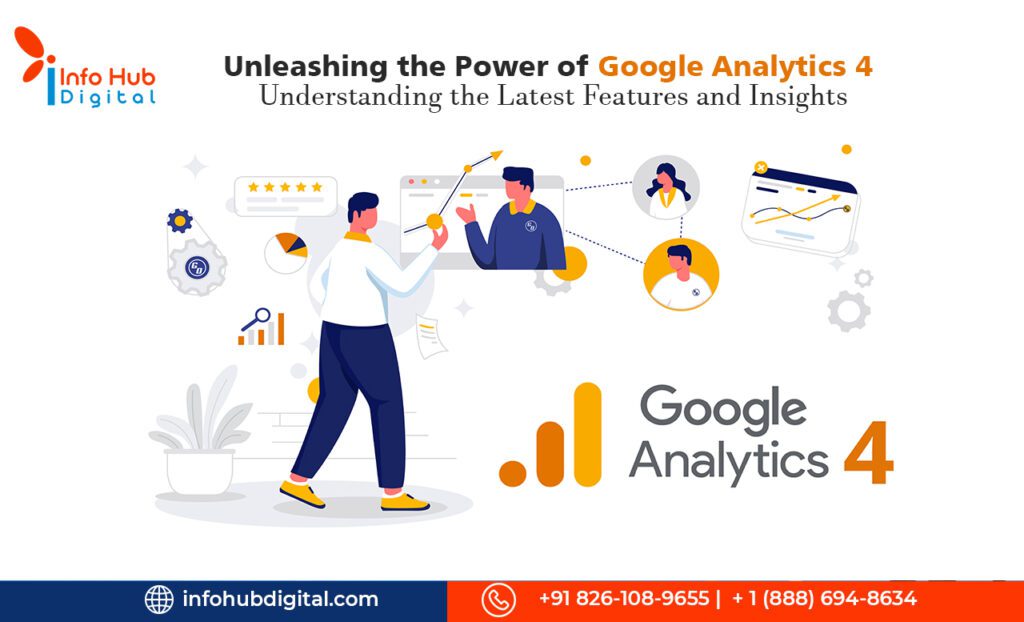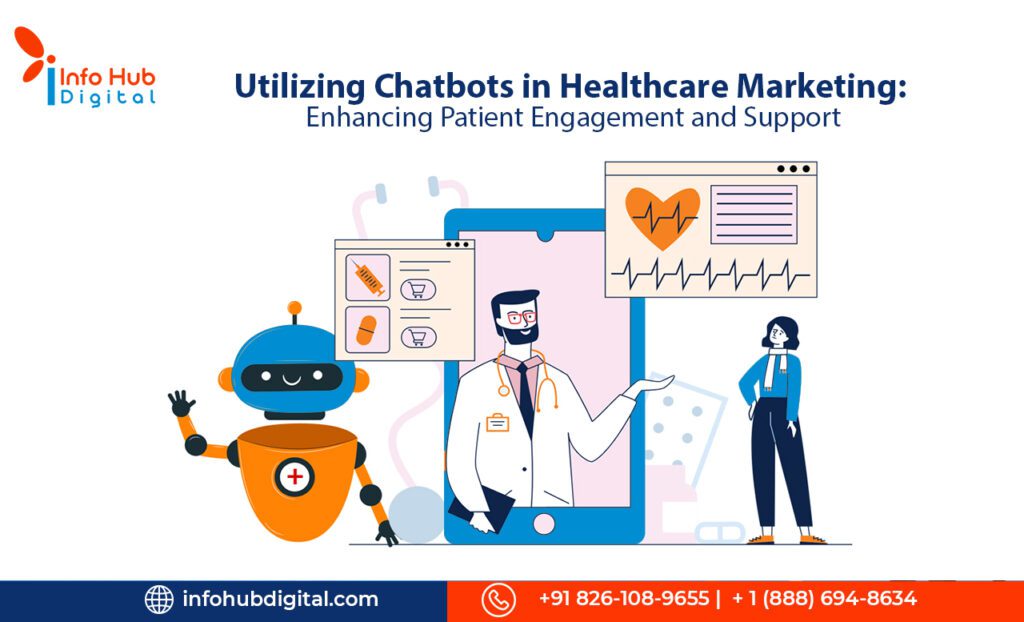In today’s digital age, social media has revolutionized the way information is disseminated and received, and healthcare professionals are increasingly leveraging these platforms to connect with patients and build meaningful relationships.
This article explores the growing significance of social media marketing for healthcare professionals, focusing on how it can effectively build trust and educate patients, leading to enhanced patient outcomes and a more informed society.
Table of Contents
Understanding Social Media Marketing in Healthcare
- The Power of Social Media Platforms: Social media platforms like Facebook, Twitter, Instagram, LinkedIn, and YouTube offer healthcare professionals an unprecedented reach to a diverse audience. With billions of active users worldwide, these platforms serve as virtual communities, allowing healthcare professionals to engage with patients on a more personal level, transcending geographical boundaries.
- Benefits of Social Media Marketing for Healthcare Professionals: Engaging in social media marketing opens up a plethora of benefits for healthcare professionals. Firstly, it provides an opportunity to establish thought leadership by sharing valuable insights and expertise. Secondly, it enables them to humanize their practice, showcasing the faces behind the healthcare services. Lastly, it fosters a sense of community where patients can connect, support one another, and share their experiences.
Building Trust through Authenticity and Transparency
- Humanizing Healthcare Professionals: Healthcare professionals often carry a perception of being unapproachable or even intimidating. Social media allows them to break down these barriers by sharing glimpses of their personal lives, hobbies, and passions. Humanizing their online presence fosters relatability and cultivates a sense of trust among patients.
- Sharing Personal Experiences and Stories: Storytelling is a powerful tool in connecting with an audience emotionally. Healthcare professionals can use social media to share inspiring patient success stories, medical breakthroughs, or even their own career journeys. These anecdotes create a strong emotional bond with followers and demonstrate empathy, compassion, and expertise.
- Showcasing Behind-the-Scenes Footage: Offering a behind-the-scenes look into a healthcare facility or a day in the life of a healthcare professional can dispel common misconceptions about medical practices. Patients appreciate transparency, and such content instills confidence in the quality of care they will receive.
Educating Patients through Informative Content
- Creating Educational Videos and Infographics: Social media platforms thrive on visual content, and healthcare professionals can seize this opportunity to educate patients through engaging videos and infographics. Explaining complex medical concepts in a visually appealing manner simplifies understanding and encourages patients to take an active role in their health.
- Sharing Health Tips and News Updates: Healthcare is an ever-evolving field, and patients are constantly seeking reliable information. Sharing regular health tips and news updates positions healthcare professionals as trusted sources, promoting overall health literacy within the community.
- Debunking Medical Myths and Misconceptions: Misinformation can spread like wildfire on social media, and healthcare professionals can combat this by debunking prevalent medical myths and misconceptions. By providing evidence-based information, they empower patients to make informed decisions and avoid falling victim to misinformation.
Engaging Patients and Fostering Relationships
- Responding to Queries and Concerns: Social media is a two-way communication channel. Responding promptly and professionally to patient queries and concerns demonstrates attentiveness and genuine care. It strengthens the patient-professional relationship and enhances patient satisfaction.
- Conducting Live Q&A Sessions: Live Q&A sessions allow healthcare professionals to interact with a broader audience in real-time. These sessions provide valuable insights into patients’ concerns, enabling healthcare professionals to address them directly and dispel any doubts or fears.
- Running Polls and Surveys: Polls and surveys not only engage patients but also serve as valuable market research tools for healthcare professionals. Understanding patient preferences and opinions aids in tailoring services to meet patient needs effectively.
Adhering to Ethical Guidelines and Privacy
- Patient Confidentiality and Data Security: Respecting patient privacy is paramount in social media marketing for healthcare professionals. Strict adherence to ethical guidelines ensures that no patient information is shared without explicit consent, protecting their confidentiality and fostering trust.
- Fact-Checking and Citing Sources: With an abundance of information online, it is crucial to fact-check content before sharing it. Citing reputable sources enhances credibility and promotes evidence-based practices.
- Avoiding Sensationalism and Misleading Information: While social media thrives on engaging content, healthcare professionals must avoid sensationalism and clickbait. Accuracy and honesty should always be at the forefront to maintain credibility and patient trust.
Measuring Success and Analyzing Impact
- Setting SMART Goals for Social Media Campaigns: To gauge the effectiveness of social media marketing efforts, healthcare professionals should establish Specific, Measurable, Achievable, Relevant, and Time-bound (SMART) goals. These goals can be related to increased patient engagement, website traffic, or improved patient satisfaction.
- Utilizing Analytics to Assess Performance: Social media platforms offer comprehensive analytics tools that provide valuable insights into the performance of posts and campaigns. Analyzing data allows healthcare professionals to identify successful strategies and areas for improvement.
- Adapting Strategies for Continuous Improvement: The digital landscape is constantly evolving, and so should social media strategies. Healthcare professionals should be open to adapting their approaches to meet the changing needs of patients and the demands of the platform.
Conclusion:
In conclusion, Info Hub Digital stands out as the best social media marketing services providers for healthcare professionals in India and the USA. With a proven track record of empowering healthcare practitioners to build trust and educate patients, we bring a perfect blend of creativity and professionalism to our services. Our team of experts excels in humanizing healthcare professionals through authentic content, sharing informative materials to boost patient literacy, and fostering engaging relationships through interactive sessions. Adhering to strict ethical guidelines and data security, we ensure patient confidentiality and credibility. Partner with Info Hub Digital today to unlock the full potential of digital marketing for your healthcare practice and make a meaningful impact on patient care.







